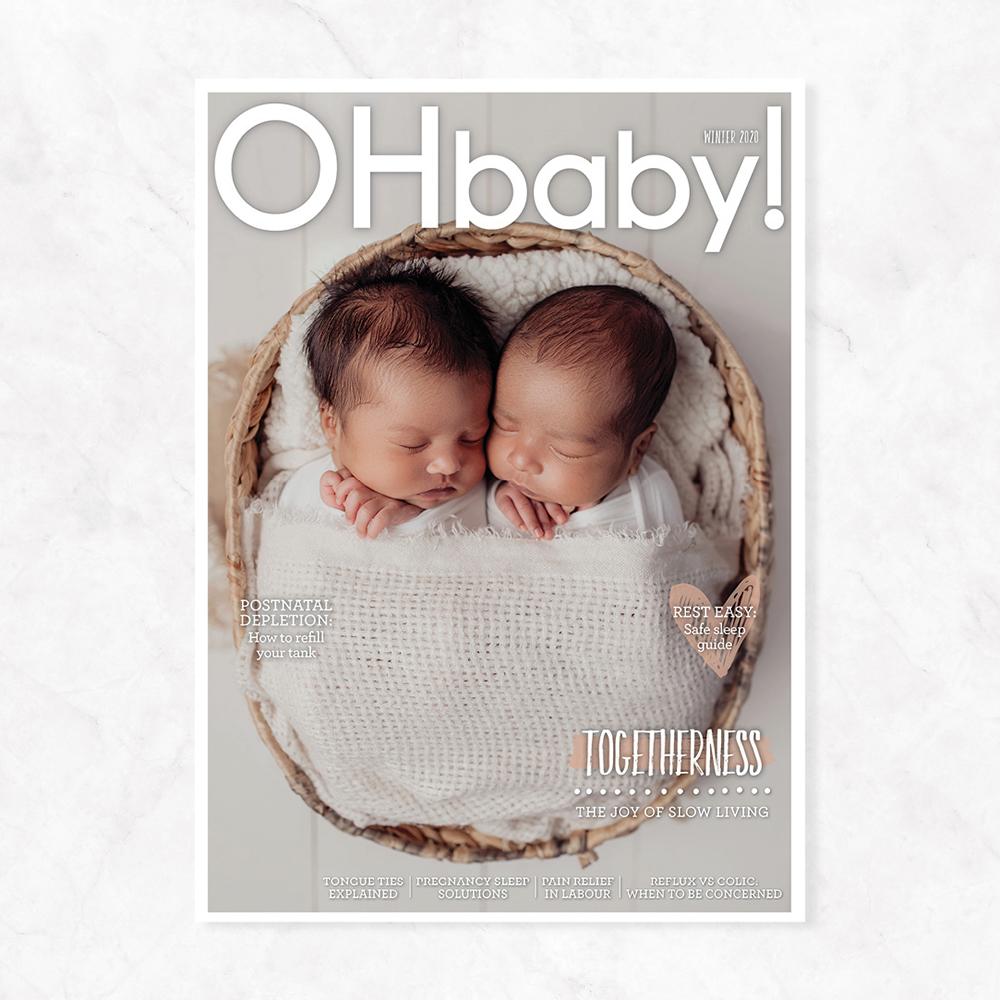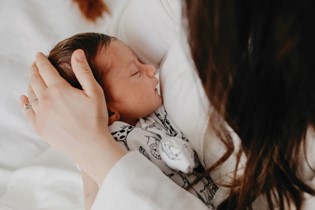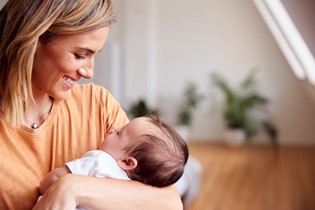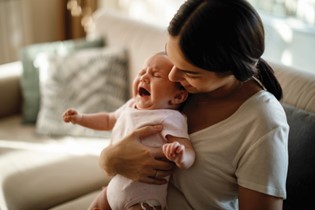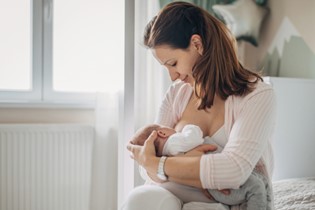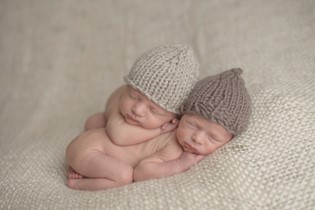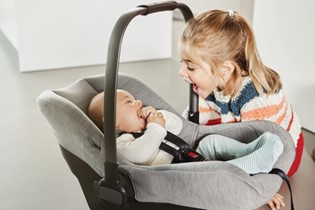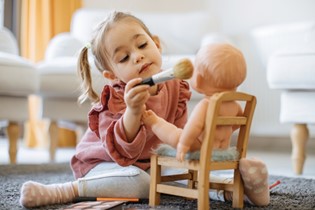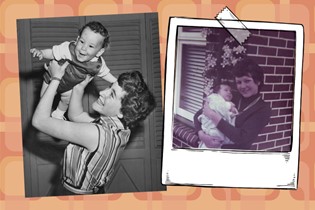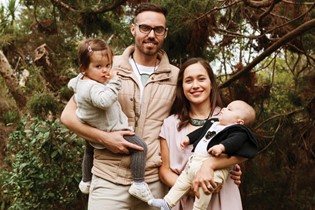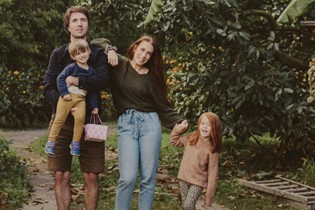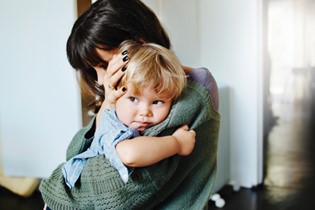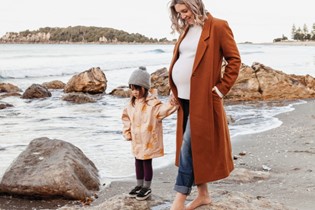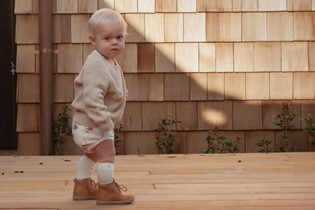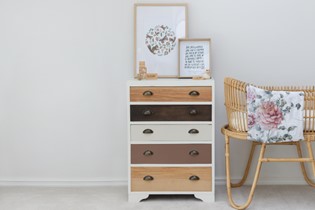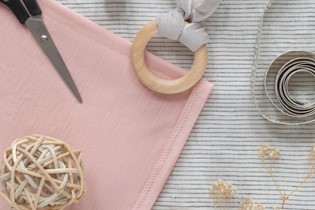One family's mission: passing on the taonga of te reo
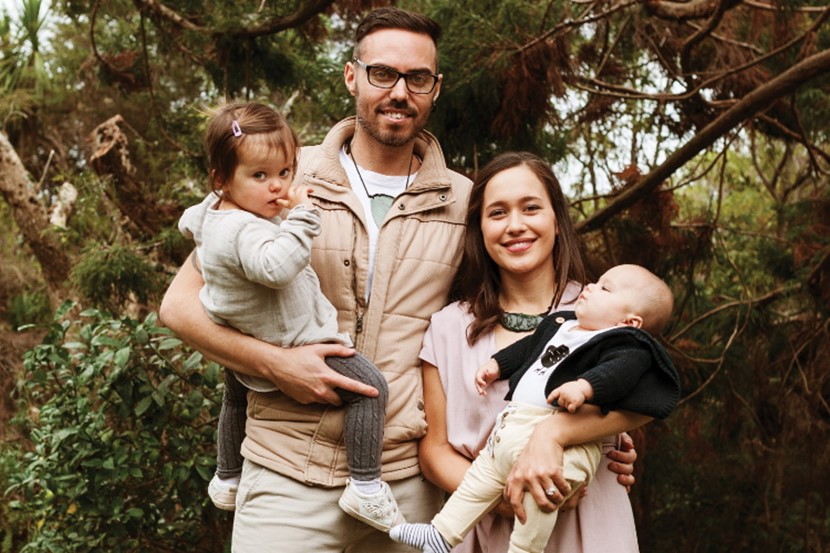
Raising the next generation of fluent Te Reo speakers is the Tamihana family’s mission.
When we arrived at the Tamihana family home we were greeted with a cheerful ‘Kia Ora’ on the brightly coloured doormat, a precursor of the warmth that awaited us inside. Aroha and Hamuera Tamihana live in Bethlehem, Tauranga, and have two children, Te Rauriki Māia, aged two, and her beloved brother Manahau Ākina, who’s just three months old.
Aroha welcomed us with cups of tea and fresh home-made slices, cookies and croissants. Manaakitanga (hospitality) is at the heart of this home, and is a value inherited from the couple’s own families. “My parents modelled selflessness and manaakitanga to us kids by always putting others first,” says Aroha. “There was always a drink to be offered and food to be shared when people visited our home. It didn’t matter who they were, every visitor was treated equally.”
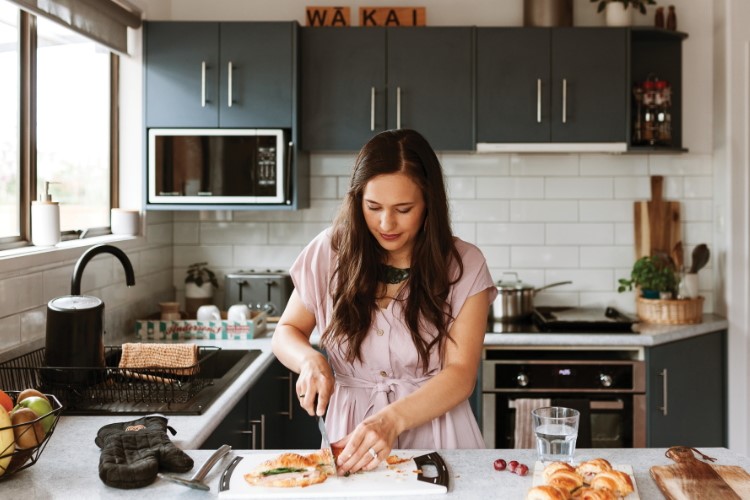
TE REO MĀORI
Te reo Māori is the main language spoken in their home and Hamuera is a te reo Māori teacher at Bethlehem College, teaching tauira (students) from years 9–13. Hamuera speaks solely Māori to his children, and Aroha (who humbly still considers herself a learner) speaks to the kids in te reo 90% of the time (which is as good as fluent in my book!). For times when Aroha can’t quite express herself in te reo, she will speak in English with Hamuera. Nurturing the growth of te reo Māori and te ao Māori (Māori world view) in Aotearoa is a core value that unites this couple.
Neither grew up speaking te reo, they started to learn the language in high school and university. “My nan was fluent in te reo but didn’t teach her kids because back then it was considered a waste of time,” Hamuera explains. It’s hard to imagine but in that era, speaking Māori in schools was punished. Fortunately, times have changed!
Aroha acknowledges that there’s also a whole new vocabulary to learn when you have children, so there are labels in te reo dotted around the house and she and Hamuera are on a learning journey with the kids. Couples like Aroha and Hamuera are torchbearers passing the taonga (treasure) of te reo on to the next generation.
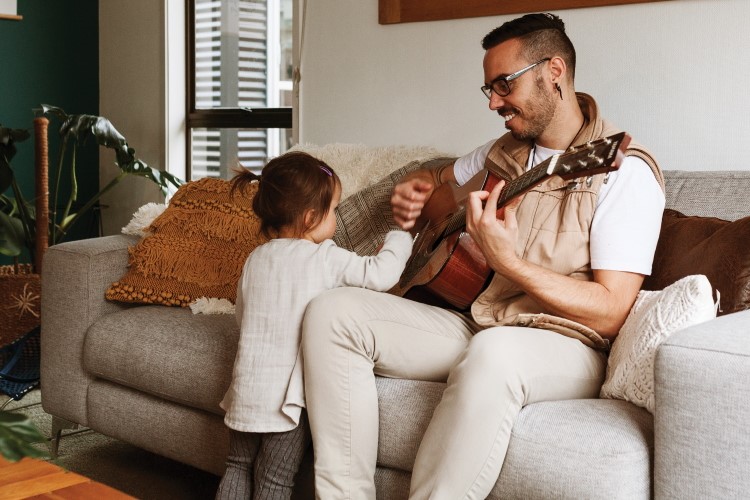
MANA MĀORI
Right now there’s a growing interest among Māori and non-Māori people to learn te reo. “Heaps of staff at my school are starting to learn te reo at levels one and two,” says Hamuera. “Our deputy principal is doing level four this year and our head of music is doing a year of full immersion. It’s awesome when non-Māori take it up, I’m always trying to support anyone who wants to learn te reo.”
The driving force behind the couple’s commitment to te reo Māori is summed up by this whakatauki (proverb): ‘Ko te reo te mauri o te mana Māori’ – meaning language is the life force of mana Māori. By having the māia (courage) to get outside their comfort zone and learn the language, Hamuera and Aroha are helping restore the mana of their people. Hamuera’s vision is that it would become the norm to hear Māori spoken in our communities, at the supermarket for example. Language and identity are so intertwined that the future of Māoridom is heading in the right direction with this resurgence of te reo.
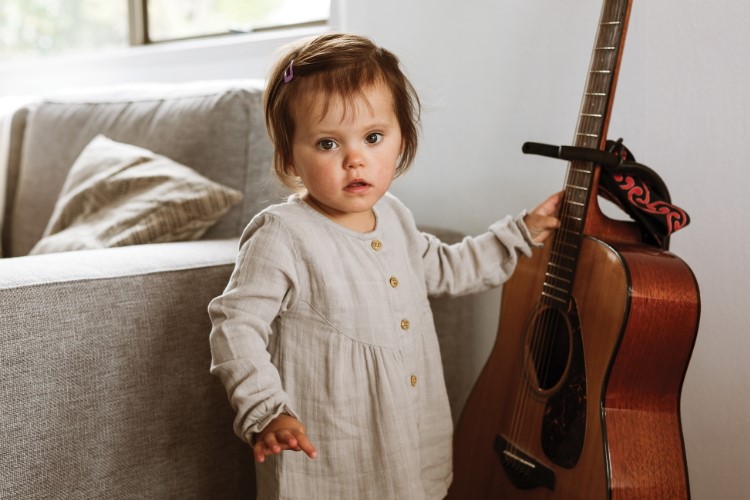
IT ALL STARTED AT A 21ST...
While studying at the University of Canterbury, Hamuera flatted with Aroha’s brother who threw a big party for his 21st birthday... and that’s where this beautiful couple met. Their relationship developed further when Hamuera managed to wangle an invitation to join Aroha’s family on their annual holiday to Waihi Beach. “I was actually surprised when Aroha’s brother encouraged the relationship. He’d seen me at my worst (as close friends do!) but he still gave his endorsement.”
They first lived in Hamilton, while Aroha studied media arts and Hamuera did his teaching diploma. When they moved to Tauranga, Aroha felt instantly at home, and wasn’t surprised to later discover she has ancestral connections to the local Wairoa marae.
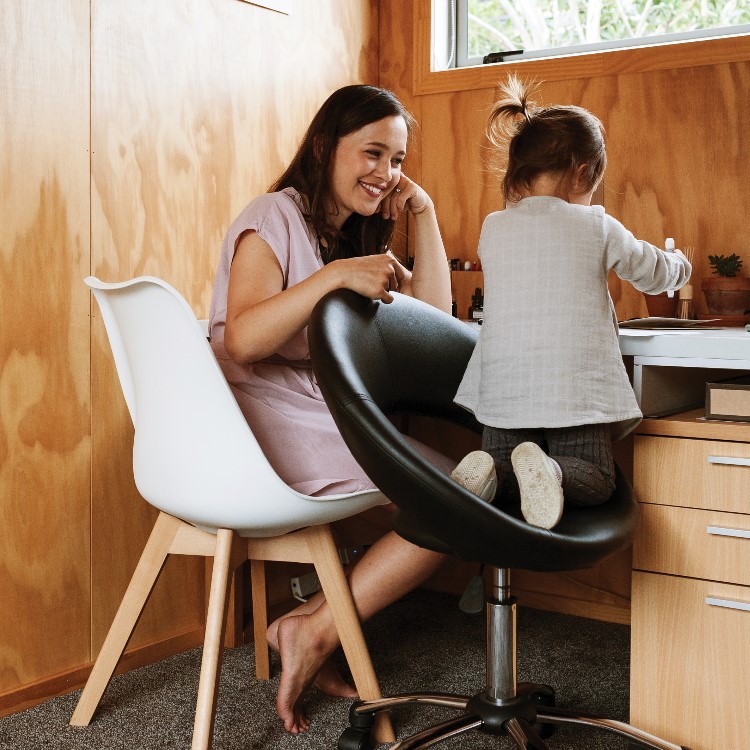
A ROUGH START TO MOTHERHOOD
Te Rauriki was born at the Bethlehem Birthing Centre. The birth went well, Aroha recalls, but after she got home she came down with a fever and cramps, which she assumed were after-pains. She ended up in hospital for a week due to an infection, possibly from a remnant of placenta in the uterus, and was told that had she left seeking medical help any longer, she could have died. “I had nothing to compare it to, and downplayed it a lot. Looking back I should have raised it with my midwife sooner. That was the worst week of my life!”
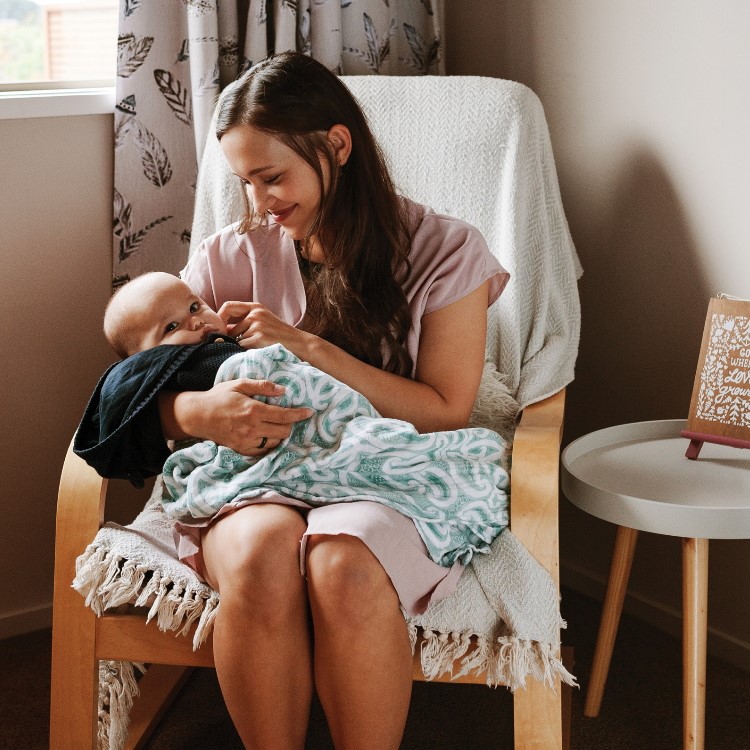
LEARNING CURVES
Since becoming a mum, Aroha has been amazed at how some things in parenting can be so intuitive – and others not. “I never realised how awkward breastfeeding was going to be the first time around!” When Aroha was unwell in hospital with Te Rauriki, her milk dried up so she was expressing and pumping milk daily. “Once I got my milk supply back it was all fine. I really enjoy breastfeeding, it’s quite a special bonding experience, so I’m really glad I persisted.”
Hamuera cut the cord at both births, but when Manahau was born, he and Aroha incorporated a Māori tradition of cutting the cord with a pounamu loaned to them by her sister. “It was surprisingly easy to cut with pounamu, it went straight through, whereas the first time I used scissors it was quite hard to cut,” recalls Hamuera. Aroha had a normal recovery after giving birth to Manahau, and her breastfeeding experience with him was completely different. “It was easy from the start.” She jokes that when her milk came in her breasts enlarged so much that, “They were like watermelons on steroids!”
Te Rauriki has embraced life as a big sister. “If she’s been away at her grandparents for the night you’d expect her to come running back to us, but Te Rauriki runs straight to her little brother, not to us – the parents!” laughs Hamuera.
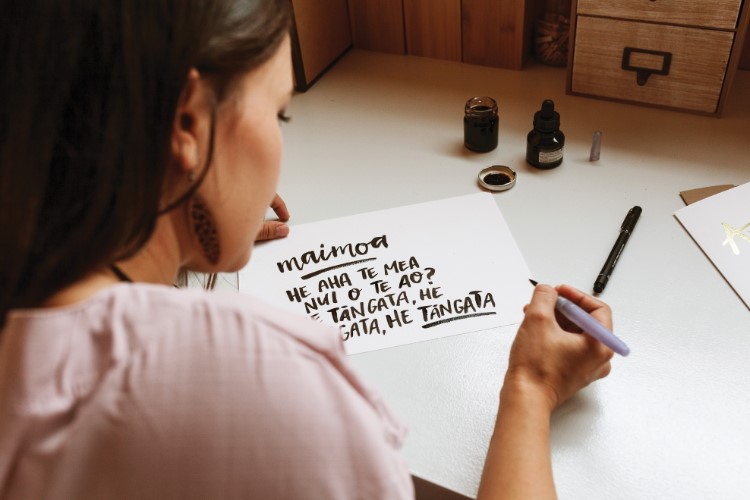
A SIDE HUSTLE
Aroha is a graphic designer and currently on maternity leave from her part-time job at WAVE Creative Communications Agency. Aroha loved going back to work part-time after she had Te Rauriki. “It’s so nice to have adult conversations and a lunch break where you don’t have kids on you – it’s a nice mental shift. I love being a mum but I’m someone who needs that other passion on the side.” Aroha’s side hustle is website maimoa.nz, which incorporates her love of typography and her vision to normalise the use of te reo Māori in everyday life, celebrating the beauty of the language. From her home studio she designs and sells hand-drawn prints and greeting cards in te reo Māori.
One of the biggest challenges she faces as a mum is accepting the slower pace for the growth of Maimoa. In the Gallup Clifton Strengths Assessment, Aroha’s top strength is ‘Achiever’ but these days her achievements are family focused. “With motherhood, you have to
take every little thing as a win. When you have a newborn, even just cooking the dinner is a real achievement! I’d love to invest more time in the business, but I’m limited to giving it the ‘leftover’ hours. Raising a whānau is my top priority, so I treat my business more as a hobby for now, with the hopes it can grow into something much bigger in the future.”
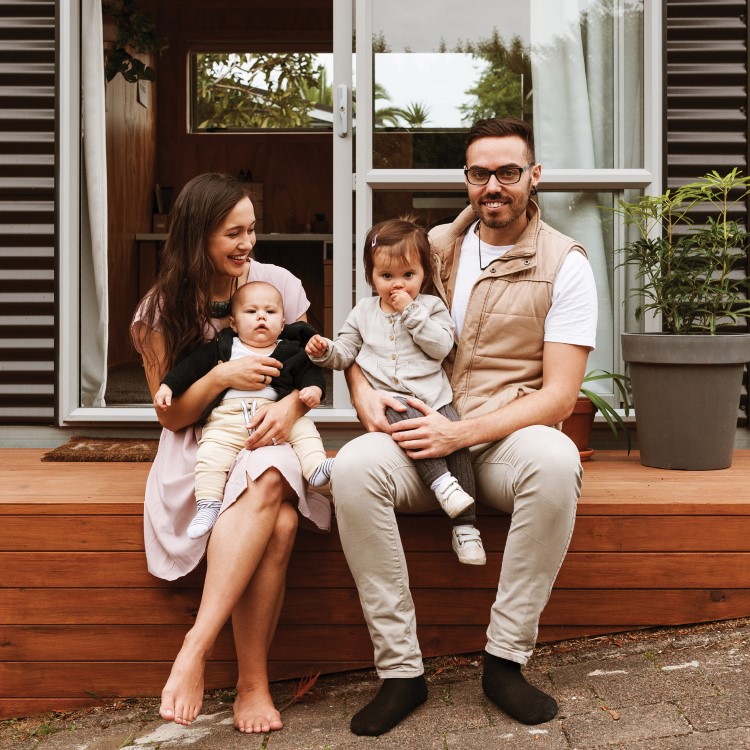
WHANONGA PONO (VALUES)
The Māori language isn’t the only taonga the couple want to pass on to their children. “We both grew up feeling safe, loved and important,” says Aroha. “Our childhoods were quite similar in the sense that our parents had similar values. We give our two the time to be heard, so they learn that relationships are a two-way thing. We want them to watch their parents treat everyone with respect (including ourselves) so they know how to behave as a decent human being in this world. Kids watch your actions more than hear your words, so we need to set an example and do everything we want our kids to do.”
Aroha grew up overseas for the first 11 years of her life – her parents were humanitarian aid workers. “My family lived in a third world country for most of my childhood, so I want Te Rauriki and Manahau to understand how very blessed we are, and not take things for granted.”
EMBRACING THE VILLAGE
If the couple have any advice for other families, it’s to find your community and to stop comparing yourself to others. In addition to their own incredible families, Aroha and Hamuera are part of a church community (C3 Tauranga), which they’ve journeyed with since Aroha was pregnant with Te Rauriki. Their church community has cooked the couple “countless” meals, offered a range of babysitters and shared with them numerous hand-me-downs. “Having the support from our loving community has made this parenting journey 300% better than if we attempted to do it all ourselves,” says Aroha.
Comparison is a hard habit to break, but Aroha has also had to learn to stop comparing her kids’ development with others. “My daughter has been ‘behind’ in pretty much every ‘recommended’ milestone, but she always gets there in the end. My advice is go with your gut. If you’re not stressed about how your kid is doing, then embrace that inner peace. But if something is genuinely worrying you, don’t be afraid to seek advice.”
The Tamihanas are visionaries and it’s clear that nothing is going to distract them from their dream of restoring mana Māori in Aotearoa. We wish them well.
Photography: Alice Veysey
Words: Marianne Falconer

AS FEATURED IN ISSUE 50 OF OHbaby! MAGAZINE. CHECK OUT OTHER ARTICLES IN THIS ISSUE BELOW
